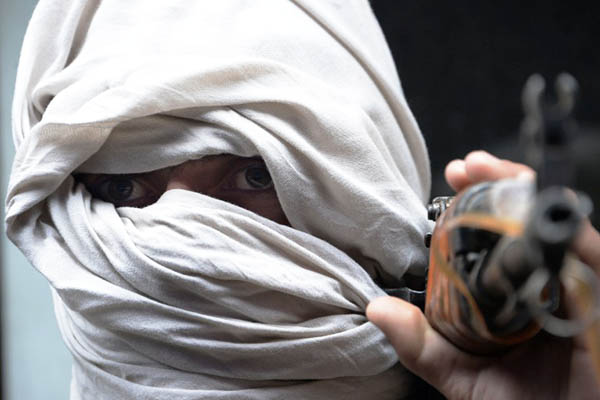
File Photo. Noorullah Shirzada—AFP
Pakistan has only itself to blame for the non-state warriors challenging its writ
Pakistan’s consensual foreign policy response to U.S. President Donald Trump’s critique of Islamabad’s terrorist “safe havens” is based on the presumption of a “fatal foreign policy blunder”—that of joining America’s war against terrorism. When General Zia joined the “deniable” war against the Soviet invasion of Afghanistan, no one thought it was a blunder. After an interregnum of isolationism under Zulfikar Ali Bhutto, the Army thought it was getting back among nations that took on the Soviet Union collectively. Above all, when America went to the United Nations on the issue, it had found India missing. That was enough for Pakistan: India was left out of the most powerful consensus against the existence of the Soviet Union.
Hence, it was okay to get on the bandwagon of a war that Pakistan liked because it was “deniable”: look we are not involved! A much-weakened post-Bhutto economy got a boost as the purse-strings in the United States and Saudi Arabia were loosened dollar-for-dollar and Pakistan was given the freedom to deal with the private warriors zeroing in on Pakistan from Indonesia to Algeria. Above all, the general-president in Islamabad got the free space he needed in which to push forward Pakistan’s “nuclear program”—which had become the central point of Pakistan’s India-centric nationalism after the loss of East Pakistan. From Pakistan’s control of the anti-Soviet covert war in Afghanistan sprang the covert jihad of Kashmir. It was not a “blunder” to have joined “America’s war”; it was a boon for a troubled Pakistan. It got the money and it got the non-state warriors to fight the “asymmetric” war against India.
No one else but Pakistan is to blame. Least of all America on whose money Pakistan got back the equilibrium it had lost by overturning democracy and killing an elected prime minister. The non-state actors have returned from Pakistan’s covert war to trouble a state that has lost its writ to their localized tyranny in almost half of its territory, including the megacity of Karachi. It has seen Mangal Bagh ruling in Khyber Agency, Fazlullah ruling in Swat and the Taliban-Al Qaeda ruling in Waziristan. It “mainstreamed” the Afghan Taliban in Quetta Shura while most of Balochistan remained a no-go area. It steadily “mainstreamed” Sipah-e-Sahaba by renaming it Ahle Sunnat wal Jamaat in South Punjab and let ex-ISI chief General Hamid Gul “mainstream” the rest through the Defense of Pakistan Council now in the control of a “charity” warlord on the U.N.’s list of internationally designated terrorists.
